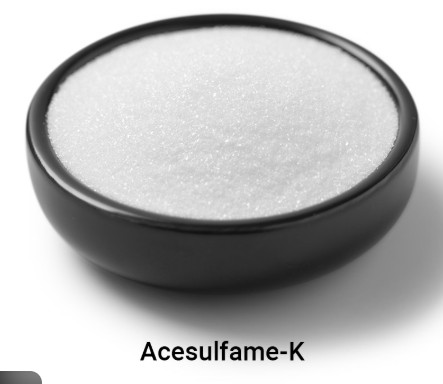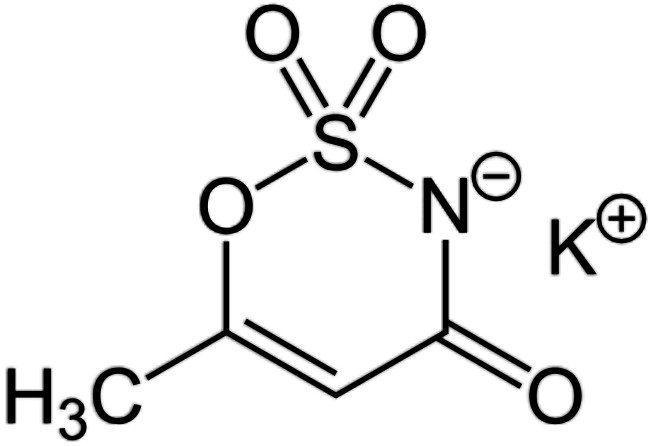Acesulfame Potassium BP: The Smart Sweetener Shaping the Future of Food and Pharmaceuticals

In a world where “less sugar” and “better health” have become global goals, industries are racing to find sweetening solutions that balance taste, cost, and safety. Among the front-runners stands Acesulfame Potassium BP, a name you’ve probably seen on product labels, often shortened as Ace-K. Yet beyond the label lies a fascinating story of science, innovation, and precision — one that is transforming how we sweeten our foods and medicines.
Understanding Acesulfame Potassium BP

Acesulfame Potassium BP is a high-intensity, calorie-free sweetener that delivers around 200 times the sweetness of sugar. In chemical terms, it’s the potassium salt of 6-methyl-1,2,3-oxathiazin-4(3H)-one 2,2-dioxide — a stable, white crystalline compound.
The “BP” tag means it meets the stringent purity, identity, and quality standards defined by the British Pharmacopoeia, making it suitable for both food and pharmaceutical applications. In simple words, it’s not just any sweetener — it’s a laboratory-certified, pharmaceutical-grade ingredient trusted by professionals worldwide.
Ace-K was first discovered in 1967 by German chemists at Hoechst AG, and since then, it has earned approvals from global health authorities including the FDA, EFSA, and WHO/JECFA. Over five decades later, its reputation as a clean, heat-stable, and safe sugar substitute continues to grow stronger.
Why the Industry Loves Acesulfame Potassium BP
If sweetness were a science, Ace-K would be one of its masterpieces. Here’s why it has become indispensable across industries.
1. Potent and Efficient
Acesulfame Potassium is intensely sweet — 200 times sweeter than sucrose — meaning only micro-amounts are needed. This dramatically reduces production cost per serving, especially for low-calorie or sugar-free products. In economic terms, Ace-K gives you more sweetness for less cost, with no calories added.
2. Remarkable Heat and pH Stability
Whereas some artificial sweeteners break down during baking or in acidic beverages, Ace-K stands firm. It resists heat up to 225°C and remains stable across a wide pH range. That’s why it’s used in products from baked cookies and syrups to diet colas and chewable tablets.
3. The Perfect Blending Partner
Ace-K rarely works alone. When paired with other sweeteners such as Aspartame, Sucralose, or Stevia, it creates a synergistic sweetness that mimics sugar’s taste curve while masking the bitter aftertaste of some alternatives. This makes it a formulator’s secret weapon in crafting the “perfect sweetness profile.”
4. Long Shelf Life and Safety
Another hidden advantage is its stability over time. Even after months in storage, Ace-K maintains its sweetness and quality — ideal for tropical climates like Kenya’s, where temperature fluctuations can affect product integrity.
Acesulfame Potassium BP in Action
Let’s look at where this ingredient actually makes a difference.
1. Beverages and Dairy
From sugar-free sodas to flavored yogurts, Ace-K provides sweetness without calories. It blends seamlessly into acidic drinks, resists breakdown during pasteurization, and maintains taste over time. That’s why it’s found in global beverage brands and local dairy formulations alike.
2. Baked Goods and Confectionery
Bakers appreciate Ace-K’s thermal stability. It retains sweetness after oven exposure, making it perfect for low-sugar cakes, biscuits, and energy bars. In candies and gums, it provides a long-lasting sweetness that enhances mouthfeel.
3. Pharmaceutical and Nutraceutical Applications
Beyond the kitchen, Acesulfame Potassium BP shines in the lab. It sweetens chewable tablets, syrups, effervescent powders, and oral suspensions, improving patient compliance without affecting drug chemistry. Since it’s non-carcinogenic and non-metabolized, it’s ideal for diabetic-friendly formulations.
4. Tabletop Sweeteners and Powders
Ace-K’s high solubility and clean taste make it a go-to ingredient for instant drink mixes and tabletop sweetener sachets. Combined with bulking agents like dextrose or maltodextrin, it delivers consistent sweetness per dose.
How It Works in the Body
Ace-K’s metabolic pathway is one reason regulators trust it. After ingestion, it is rapidly absorbed in the gastrointestinal tract, passes through the body unchanged, and is excreted in urine within 24 hours. It does not accumulate, alter blood glucose, or contribute calories.
The Joint FAO/WHO Expert Committee on Food Additives (JECFA) established an Acceptable Daily Intake (ADI) of 15 mg per kilogram of body weight per day — far above the levels found in typical diets. In short, one would need to consume hundreds of artificially sweetened drinks daily to approach any safety limit.
Safety and Global Approval
Acesulfame Potassium BP has undergone rigorous testing for toxicity, carcinogenicity, reproductive safety, and mutagenicity. Multiple studies have confirmed its safety, leading to approvals by:
- FDA (United States) – Approved since 1988 for food and beverage use.
- EFSA (European Union) – Listed as additive E950 with no health concerns at permitted levels.
- WHO & JECFA – Endorsed globally as safe within ADI limits.
Contrary to myths that sometimes circulate online, Ace-K is not linked to cancer, hormonal imbalance, or metabolic disorders when used as approved. Its track record of safe consumption spans over 50 years and billions of servings worldwide.
Why “BP Grade” Matters
Not all sweeteners are equal. When you see Acesulfame Potassium BP, it means the ingredient meets British Pharmacopoeia standards, guaranteeing:
- Purity ≥ 99.0%
- Low impurity and heavy metal content
- Consistent assay results
- Safe for pharmaceutical and food-grade applications
In regulated markets or export-driven businesses, BP compliance isn’t optional — it’s the difference between premium quality and rejected batches. For manufacturers in Kenya and Africa aiming for global competitiveness, using BP-grade ingredients signals professionalism and reliability.
The Market Perspective: Health Meets Innovation
The global shift toward healthier lifestyles has boosted demand for artificial and natural sweeteners. Consumers want great taste without sugar, and brands are racing to deliver.
Ace-K plays a pivotal role in this transformation. It supports the creation of zero-calorie sodas, reduced-sugar yogurts, and low-carb snacks, allowing brands to make nutritional claims without compromising flavor.
In Africa, where diabetes and obesity rates are rising, such innovations aren’t just trends — they’re necessities. The ability to manufacture shelf-stable, sugar-free, and affordable products is key to tapping into this rapidly growing market.
Challenges and Considerations
While Acesulfame Potassium BP offers numerous benefits, formulation success depends on expertise. Overuse can create a slightly bitter or metallic aftertaste, especially when used alone. The best practice is to blend it with other sweeteners like sucralose or stevia to achieve a rounder, more natural sweetness.
In product labelling, transparency is equally critical. Consumers increasingly demand clarity on ingredients. Proper declaration — “Contains Acesulfame Potassium (E950)” — builds trust and ensures compliance with both local and international regulations.
The Future of Sweetening: Beyond Sugar
The future belongs to intelligent formulation — combining science, regulation, and consumer awareness. Acesulfame Potassium BP stands at that intersection. Its proven safety, high efficiency, and adaptability make it a cornerstone ingredient for:
- Healthier beverage formulations
- Low-sugar confectionery
- Pharmaceutical innovations
- Export-ready consumer goods
As more consumers seek wellness without compromise, Ace-K will continue shaping the next generation of products — sweet enough to satisfy, smart enough to sustain.
Final Thoughts
Acesulfame Potassium BP isn’t just another sweetener. It’s a symbol of progress — where chemistry meets nutrition, and innovation meets responsibility. For manufacturers, it represents reliability and performance. For consumers, it means sweetness without guilt. And for the future of food and pharmaceuticals, it’s a step toward smarter, healthier formulation.
Whether you’re crafting a sugar-free drink, developing a new medicine, or formulating for export markets, Acesulfame Potassium BP offers the precision, purity, and performance that today’s world demands. It’s not simply about replacing sugar — it’s about redefining sweetness for a healthier generation.